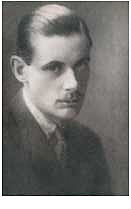 |
Plans to establish and run a small section, for the investigation of propaganda methods and their means of operation, had been made by the Foreign Office under the guidance of Lord Halifax, following the German re-armament. For the purpose of contemporary intelligence, however, the main source of information could only be that coming from refugees escaping Nazi persecution and amongst the more prominent of these was Dr. Klaus Spiecker, a former civil servant under the Weimar Republic. Falling out of favour with the Nazis he had emigrated to France and then ran an anti Nazi radio station, ‘Deutsche Freiheitsender’, from just outside Paris. When the Secret Service eventually smuggled him to England, he would then begin a similar station from Woburn, as ‘Mr. Turner’. |
|
|
|
 |
behalf of Chamberlain, to create a similar department for the expected conflict. Campbell Stuart immediately began recruiting suitable staff and especially chose Lt. Col. Reginald Alexander Dallas Brooks, a tall and athletic Australian. Born in 1886, he had served with distinction during World War One, in the Royal Marines and as a young Intelligence officer then came to the notice of Campbell Stuart, whilst in South Africa. His appointment as chief staff officer owed much to the assistance of Campbell Stuart’s friend the First Sea Lord, Sir Roger Backhouse. Dallas Brooks would assume responsibility for liaison with the various intelligence sections whilst an old friend of Campbell Stuart, Colonel R.J. Shaw, a former member of staff on the Times, became head of the section.
Following Munich, if preparations for the propaganda department had been allowed to initially lapse, a sense of urgency was soon restored and reporting to Lord McMillan, the Minister of Information, stocks of propaganda literature were swiftly sanctioned, suitable for use during the early days of conflict. The Foreign Office drafted the text for six different examples and these were submitted to Sir Alexander Cadogan, the Permanent Under Secretary, who then made the final choice. A translation into German was subsequently undertaken and H.M.S.O. prepared to print 10 million, at 6d. per 100.
The propaganda Department was funded from the Secret Vote by the Foreign Office but only on the strict understanding that at all times, departmental activities were conducted away from Foreign Office premises! Sometimes referred to as C.S., more often the Department went by the initials E.H., after Electra House, the place of it’s actual accommodation, on the Victoria Embankment. To be more precise it was actually housed in Room 207, where a Reuters tape machine and a wireless had been installed. In fact Electra House was the headquarters of Cable and Wireless, of which Campbell Stuart was the Chairman. |
|

